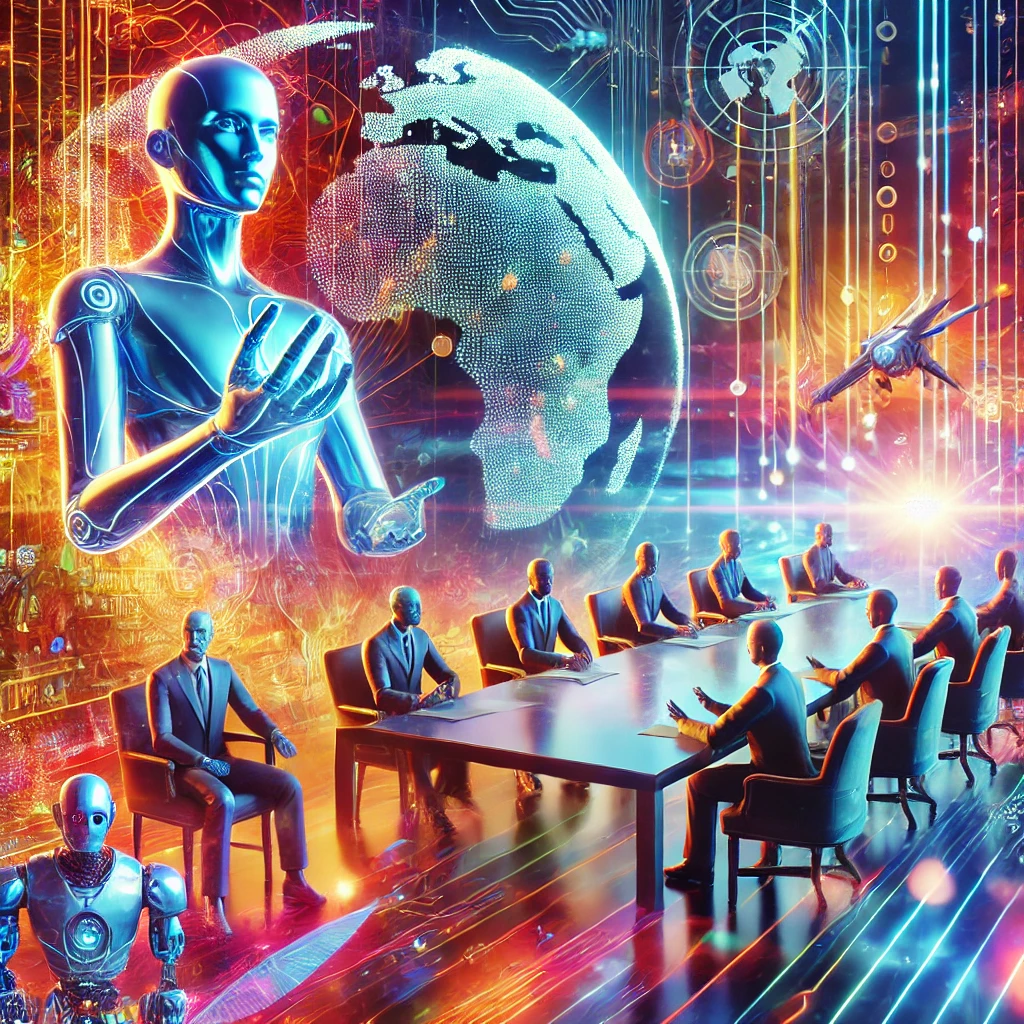27 February 2025
PulseTech Innovation Center

As artificial intelligence continues to evolve, its influence on global peace is becoming a topic of great interest. AI has the potential to revolutionize diplomacy, conflict resolution, and humanitarian efforts, but it also carries risks that could destabilize international relations. With the rise of Technology Consulting Services, Global Tech Expertise, and AI and Automation Specialists, the world is entering an era where AI-driven solutions could either foster peace or intensify conflicts.
AI in Diplomacy and Conflict Prevention
AI-powered tools are already being integrated into diplomatic processes. Advanced data analytics, predictive modeling, and real-time intelligence can help policymakers anticipate conflicts before they escalate. In regions where tensions are high, IT Consulting for Enterprises can facilitate AI-driven negotiations by analyzing historical patterns, political sentiments, and economic shifts to provide actionable insights.
Organizations working on European IT Solutions, India IT Solutions, and China IT Solutions are exploring AI-powered platforms to enhance communication between nations. AI can automate diplomatic processes, monitor treaties, and even assist in translation services to reduce misunderstandings between global leaders.
AI in Cybersecurity and Warfare
While AI has the power to promote peace, it also poses new risks in cybersecurity and digital warfare. Cloud and Cybersecurity Innovations are critical in preventing AI-driven cyberattacks that could target critical infrastructures, financial institutions, and even election processes. The rise of AI-enhanced autonomous weapons raises ethical concerns, as their deployment could lower the threshold for armed conflicts.
Governments and businesses are investing in Business Technology Integration to ensure AI security systems are in place to prevent potential misuse. In a world increasingly reliant on Digital Transformation Solutions, robust cybersecurity frameworks will be essential to maintaining international stability.
AI for Humanitarian Efforts and Crisis Management
AI’s potential extends beyond diplomacy and security—it can be a powerful tool in humanitarian aid and crisis management. Predictive analytics can help in disaster response by identifying regions most vulnerable to natural catastrophes and optimizing resource allocation. Tech Talent Recruitment Services are focusing on AI-driven projects to streamline relief efforts, track refugee movements, and enhance food distribution in conflict zones.
In sectors like Fintech and Healthcare Tech Solutions, AI is improving access to financial aid, medical supplies, and emergency response strategies. This technology plays a vital role in reducing economic disparities and addressing the root causes of conflicts before they escalate into larger crises.
AI Ethics and the Need for Global Regulation
As AI’s role in global peace continues to expand, ethical considerations and regulations are becoming increasingly necessary. Without proper governance, AI-driven misinformation campaigns, autonomous surveillance, and deepfake technologies could be used to manipulate public opinion and destabilize democracies.
Nations working on US Technology Consultants, China Technology Consultants, and India Technology Consultants are at the forefront of discussions regarding ethical AI policies. Collaborative efforts between Advanced Tech Services Europe and Digital Innovation in the USA are vital to establishing a global AI governance framework that prioritizes peace and human rights.
Conclusion: A Double-Edged Sword
AI’s impact on global peace is both promising and precarious. When used responsibly, AI can enhance diplomatic efforts, strengthen cybersecurity, and improve humanitarian responses. However, if left unregulated, it has the potential to escalate conflicts and create new security threats.
As Tech Workforce Europe and America continues to develop AI-driven solutions, the challenge lies in harnessing its power for peace rather than conflict. Ensuring AI remains a force for stability requires international cooperation, ethical frameworks, and proactive leadership in technology governance. The future of AI and global peace will ultimately depend on how societies choose to develop and implement these transformative technologies.

